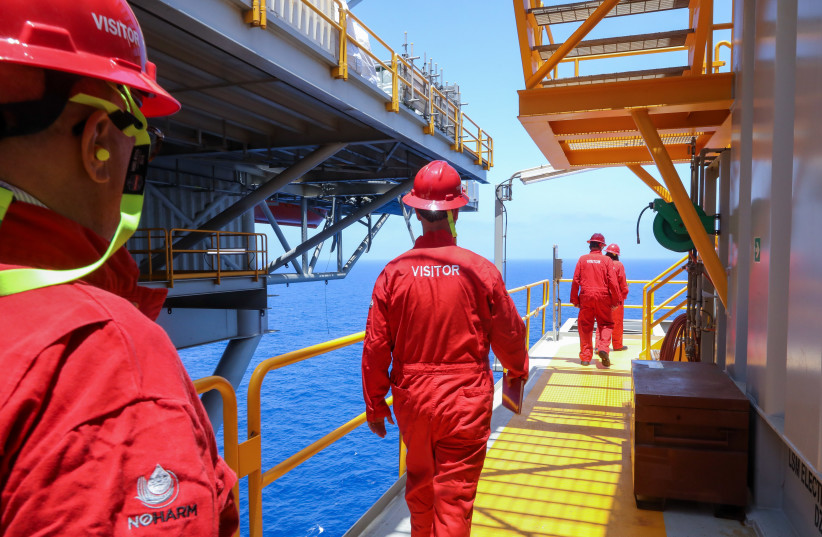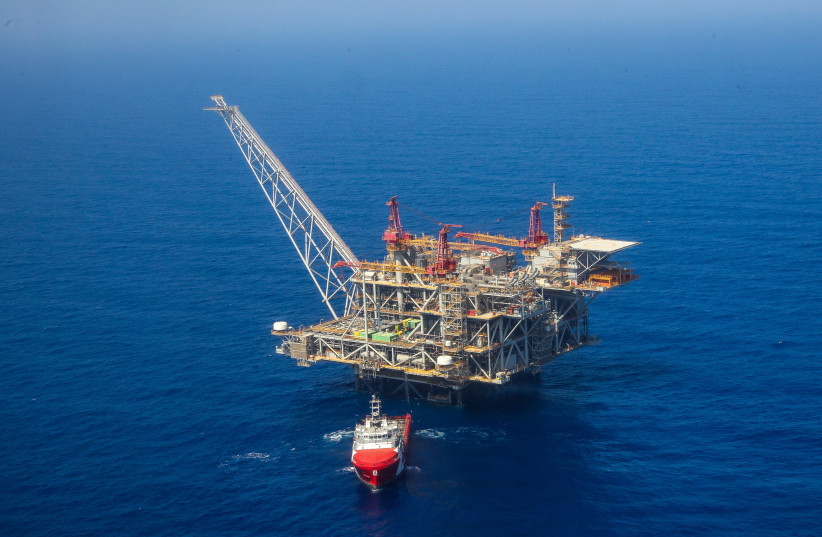By prioritizing natural gas rather than renewables, Israel is essentially saying that we prefer the comfort and convenience of the present generation over our grandchildren’s future.
By ALON TAL
Published: JUNE 18, 2022

(photo credit: MARC ISRAEL SELLEM)
Golda Meir was a politician who was more known for her common sense than her sense of humor. She did, however, have a few jokes that she recycled. In one of these she would reportedly quip: “People often say that Jews are blessed with intelligence. The truth is we aren’t so smart – I mean what other people would wander Middle Eastern deserts for 40 years, only to pick the only place that didn’t have any fossil fuels.”
“People often say that Jews are blessed with intelligence. The truth is we aren’t so smart – I mean what other people would wander Middle Eastern deserts for 40 years, only to pick the only place that didn’t have any fossil fuels.”
Golda Meir
Today, Golda would not be able to rely on this joke. Discoveries over the past two decades in the Mediterranean have made Israel a “superpower” in the area of natural gas. While this constitutes an economic bonanza, it is also a good thing in many other ways. Natural gas produces only about half of the CO2 that coal does. And its emissions are far less deleterious for humans exposed to it.
Natural gas is a game changer – not only for our energy independence, but as a geopolitical resource. Unofficial estimates suggest that 85% of the electricity in Jordan and 7%-10% in Egypt rely on imported natural gas from Israel. Rational leaders typically don’t bite the hand that feeds them. Accordingly, the new energy dynamics create a dependence that will make it far more convenient for these countries’ leadership to maintain healthy relations with its gas-rich neighbor.
Pollution
The problem is that natural gas is not pollution free. Indeed, scientists tell us that we are looking at the critical window of the coming 20 years when the world has to make a heroic transition from a fossil fuel economy to a renewable one. During this period, natural gas is anything but a panacea. That’s because of the methane released during the production and distribution of natural gas. Over a 20-year period, a methane molecule natural gas has roughly 80 to 90 times the global warming potential of a carbon dioxide molecule.
It is easy to understand the pressure brought to bear by Europe on Israel to help it find new natural gas sources following their courageous decision to cancel imports from Russia. In fact, many experts are doubtful whether the new exploration approved by Energy Minister Karin Elharrar in the Mediterranean will actually generate meaningful new natural gas reservoirs or sufficient b.cu.m. (billion cubic meters) to justify the enormous investment associated with exploring. The exploration needs to start a kilometer down and presumably find fields 3 km. below.
SIX STORIES high with pipes that seem to go on forever: The Leviathan, off the Haifa coast. (credit: MARC ISRAEL SELLEM)
But we need to consider the decision in the context of Israel’s pitiful performance thus far in generating renewable electricity. In the Paris climate accord of 2015, we promised to produce 10% renewables by 2020. Today, in 2022, we are still stuck at 9%. (By way of comparison, 67% of Denmark’s electricity comes from renewables. Wind turbines are roughly 46% with biomass contributing some 11%.)
Israel’s surfeit of natural gas makes it far too easy for pragmatic government bureaucrats (and ministers) to take a path of least resistance. Rather than adopt policies that make solar panels on rooftops and parking lots mandatory, integrate solar facilities in agricultural fields, incentivize innovation in energy storage and take bold steps to base our future economy around hydrogen, they can join the wrong side of history and double down on natural gas.
But the scientists are very clear: the planet will continue to heat up if we perpetuate our reliance on natural gas. Israel is already complacent. By prioritizing natural gas infrastructure and exploration rather than renewables, Israel is essentially saying that we prefer the comfort and convenience of the present generation over our grandchildren’s future. This hardly seems to be the kind of policies that we should expect from a country that should be finding ways to be a light unto the nations.
The writer, an MK (Blue and White), chairs the Knesset Subcommittee for Environment, Climate and Health.
https://www.jpost.com/environment-and-climate-change/article-709618

